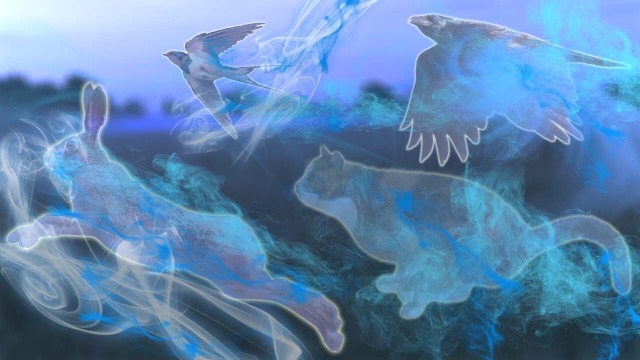
Related to the Norns were the Familiar Spirits (hamingjur) and the Attendant Spirits (fylgjur). The Familiar Spirits were supernatural, usually invisible feminine beings who accompanied men and directed their course. Each person had his Familiar Spirit, who strove to bring him good luck;1 it was possible to lend one’s Familiar Spirit to another in case one desired to run a risk in his behalf. The Attendant Spirits (fylgjur), on the other hand, ordinarily had the shape of animals who walked before men or beside them. Each person had, according to the belief of our fathers, one or more Attendant Spirits; and certain people pretended that they could see the Attendant Spirits and thus ascertain in advance who was drawing near. The Attendant Spirit usually corresponded to the character of the individual in question; powerful chieftains had bears, bulls, and the like as Attendant Spirits, crafty folk had foxes, and so forth. Supernatural beings of this type were not made the object of worship or prayer. Tales have come down to us of sundry men to whom these beings by preference revealed themselves and who by such means gained an uncommon insight into the destinies of other men. Faith in Familiar Spirits and Attendant Spirits persisted after the introduction of Christianity; even zealous Christians like Olaf Tryggvason and Saint Olaf were not wholly free from such beliefs. Occasionally both of these classes of tutelary powers were designated outright as Norns; the popular mind appears not to have drawn a sharp distinction in this respect.
1 Hence the word hamingja used as a synonym for “good fortune.”
Comments
Post a Comment